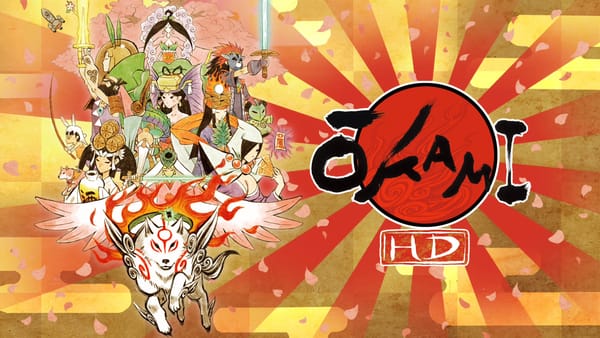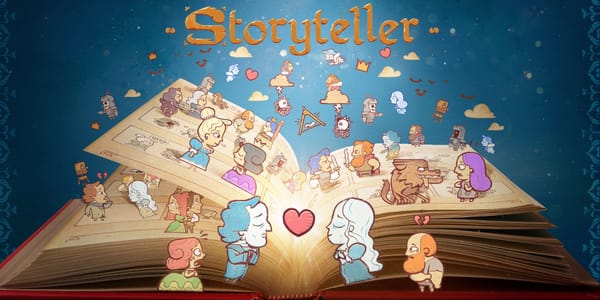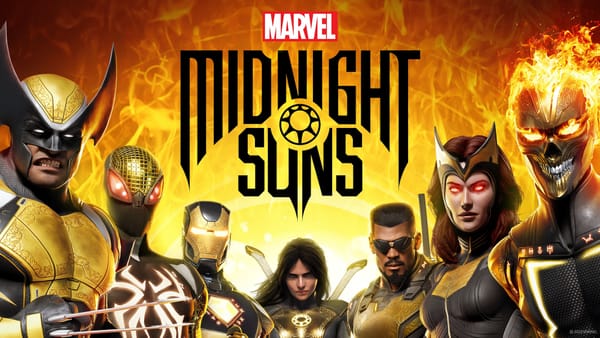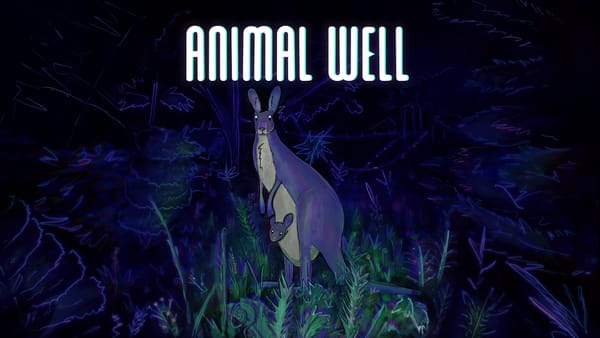Hades II and my work-in-progress
Give me the book on the shelf, not the Word doc
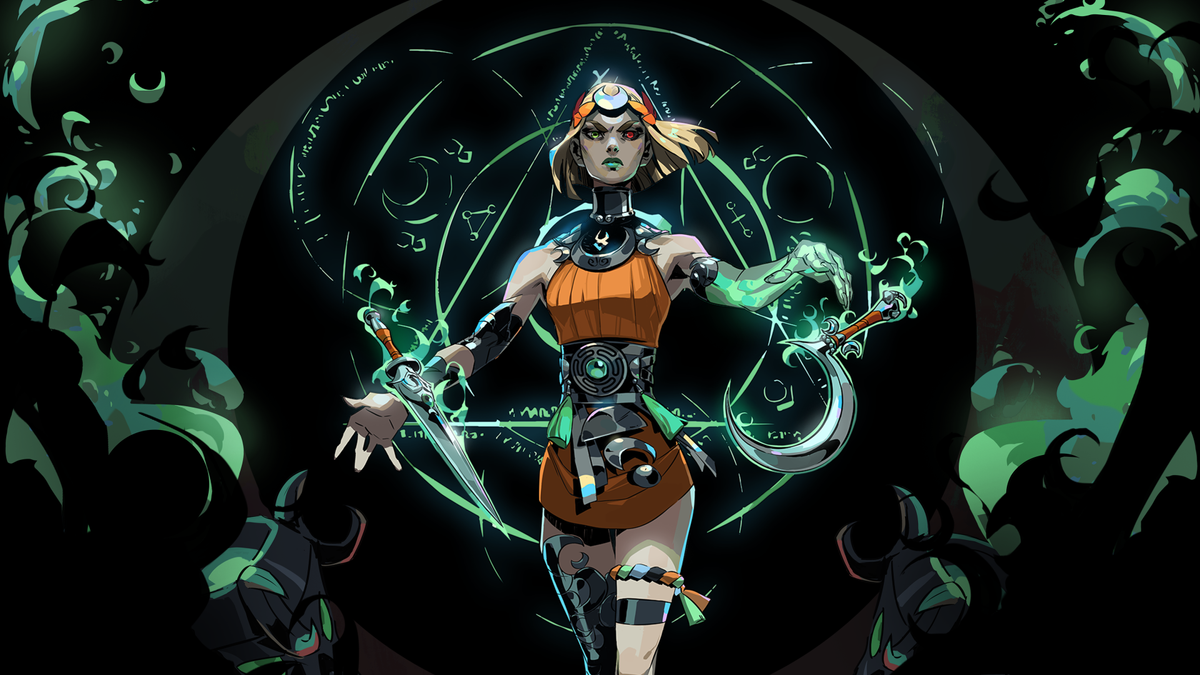
When I saw Narcissus, I stopped playing Hades II. Perhaps it’s more accurate to say when I heard Narcissus, I stopped playing Hades II. There isn’t any art for Narcissus yet, just a voice (a very good voice) and a placeholder portrait (a spooky, faceless, robed figure—also used for Charon), because Hades II, as you’ve no doubt heard, is out now in early access, definitely through the end of the year, and possibly beyond that.
To a certain extent, everything I want to say about why I’m going to challenge myself to wait for 1.0 to finish playing Hades II was said better, and more quickly, by Willa Rowe over at Kotaku. In short, Rowe, like myself, is a person who puts these kinds of games down after playing them for a while. Because of their endless nature, we all eventually just stop, no matter our chosen stopping point. As I talked about with Balatro, burnout is, for me, a natural endpoint of roguelikes. My relation to them is an intense one, and in recognizing that, I have to choose when I want them to come into my life.
I didn’t play the original Hades until it launched on Switch in 2020. I didn’t own a gaming PC at the time, and, frankly, I hadn’t heard about it until it was out-out, despite the fact that I’d played all of Supergiant’s previous games, all the way back to Bastion on the Xbox 360. Their whole “games with an in-fiction narrator” thing? If you’ve read Backlog for any amount of time, you know that appeals to me. I loved about Hades because it was simultaneously the two types of games I love best: a reading game and a roguelike. What I will love about Hades II, I can already tell, is that it is also a reading game and a roguelike—already promising to be even stronger in both categories.
Problem is, in early access, it’s only a roguelike. Or rather, it’s more complete as a roguelike than it is as a story game.
To return to Narcissus, I want to briefly say that his voice actor is doing such a tremendous job with the character that I couldn’t help but laugh out loud the moment he first spoke. There’s a sincere wistfulness to him, combined with a comic distance, a distractedness you can hear in every line as he obsesses over himself while bidding you to move along. It’s brilliant. From the writing and voice acting alone, I can picture him in my mind, clear as day.
But that’s just it—I don’t want to do that. I want to see what the artists at Supergiant choose to present him as. I want to see their take, not mine.
I could not imagine the Hephaestus they cooked up for this one. I love his man bun and the way his belly spills over his prosthetic leg. He is not the God of the Forge I would’ve envisioned, but now, I can’t picture him any other way. Same goes for Hestia, with her crown of steaming embers, and Hecate, who, um, really puts the abs in abjuration.
As is typical for an early access release, some parts of the game are more complete than others. To wit, the gameplay, at its core, could be called final today and no one would complain. The game is tight, rewarding, and instantly evokes the One more run feeling its predecessor did. If you are the kind of person who played Hades for the gameplay more than the story, you should purchase Hades II with haste. But if like me, your love of Supergiant’s body of work is tied up in the way they tell stories, approach with caution. Put simply, playing Hades II now is like reading your friend’s work-in-progress.
As I’ve opined often and at length on Backlog, probably to my readership’s dismay, I’m working on a novel. It’s about delivery drivers, productivity tracking, automation, “AI,” videogames, and a whole lot more. I think it’s going to be a great book. At present, however, it is both incomplete and a structural mess. My revision notebooks alone look like the scrawlings of a madman. There’s a lot in the manuscript already that I think really works. But it isn’t done. It isn’t a book. Not yet. I probably need, like, four or five more months for that. Give or take.
If you were to read it today, as I’ve forced my wife, family, and close friends to do at various points, you would encounter characters who, by and large, will likely remain pretty similar in the final version that I’m praying ends up in your local indie bookstore one to two years from now. But, as my wife, family, and close friends can attest, if you read it now, you will also carry with you versions of the story that end up being modified, expanded, or outright cut. You will then carry with you memories of versions of the book. You will then think of it as what it’s called in “the business” of writing: a WIP. A work-in-progress.
I’m not friends with the people who make Hades II. (Though that would be rad.) But to a certain extent, anyone who plays the game in early access is acting as that kind of writerly friend: the spouse, the friend who is also a writer, the beta reader (though I loathe the term). You’re giving them invaluable feedback that they will use to make the final version that much better than it could be if they were going it alone. You’re participating in the artistic process. And that rules. That rules that you’re doing that. Speaking for myself, my work-in-progress wouldn’t be anywhere as close to being a completed first draft if it weren't for those aforementioned folks.
But I can’t be a beta reader for Supergiant. I like their work too much to risk my own final experience with it. I want to see where they land, not their process of landing. I want to see Narcissus just as much as I want to hear him. To the same degree I want to play the game again and again, I only want to navigate the story once. Perhaps it’s selfish, but I just want the final thing. It’d be the same if someone offered me an in-progress version of the next George Saunders, the next Karen Russell, the next Jesmyn Ward, Lauren Groff, or Bernardine Evaristo. I would be tempted, sure. Very tempted. But ultimately, I would know: I want the final thing. The book on the shelf. The 1.0.
So that’s what I’m going to do with Hades II, too. If I can muster the strength. Because, truth be told, I did just do one more run before writing this.
But that’s the last one, I swear.
Bonus Links
- Okay, this first one isn’t so much a link as it is a thank you to the readers who wrote me after the Balatro post with some variation of “You good, dude?” No, but sincerely, you all were very nice about that post, and I appreciate it. I especially appreciate the folks who let me know that Backlog can be really anything—that it doesn’t have to be me (or my friends) finishing a ton of games every year. It can be about a mechanic, or a moment, or anything. I’m taking that feedback to heart, and I’m grateful for the readership for giving me that permission. In the coming weeks, I hope to reflect on more esoteric angles on games I’ve only dabbled in. I also, full disclosure, have pieces on Baldur’s Gate III and Dragon Quest XI in the pipeline, but please know that I played those very long games back in January and February, respectively. Was it wise to play two incredibly long RPGs in a row? No. Did that likely contribute to my feelings of gaming burnout? Oh, for sure, of course, duh. Anyway, thanks again, folks. When it comes to online writing, it’s always good to be reminded there are decent human beings on both sides of this divide: me writing, and you reading. So, thank you.
- Okay, so for an actual link, I really enjoyed this essay from Lincoln Carpenter over at PC Gamer on letting developers cook. In Book World™, it’s often a writer’s second book that really sells the promise of who they are as an author. Something about that sophomore effort can serve as the real entry into their aesthetic sensibilities. Game studios should get the same opportunity, if the MegaCorps that keep buying them up would let them stay open long enough to iterate. Or, as Carpenter wrote, “Oh, and they held onto the devs making their games. That probably helps. Who knew?”
- Speaking of developers being unfairly shitcanned, man, the Tango Gameworks news made me so, so sad. I played Hi-Fi Rush over holiday break, my wife watching me play the whole thing like it was a TV show, because, frankly, it was. It was as fun to watch as it was to play. So, to recap: it was a great game, and it sold well, and reviewed well, and now the people who made it are pounding the pavement. Rebekah Valentine over at IGN asked the question I would’ve asked, which is: Why would anyone pay for Game Pass when Microsoft keeps closing studios who make games for Game Pass?
- We should probably focus our money on indies, then, which are really showcasing what smaller, more sustainably produced products can bring to the industry (despite there being too many to reasonably play this year, as Luke Plunkett over at Aftermath rightfully opined). Indies, man. They’re bringing creativity, ambition, and a whole lot of fun.


